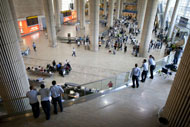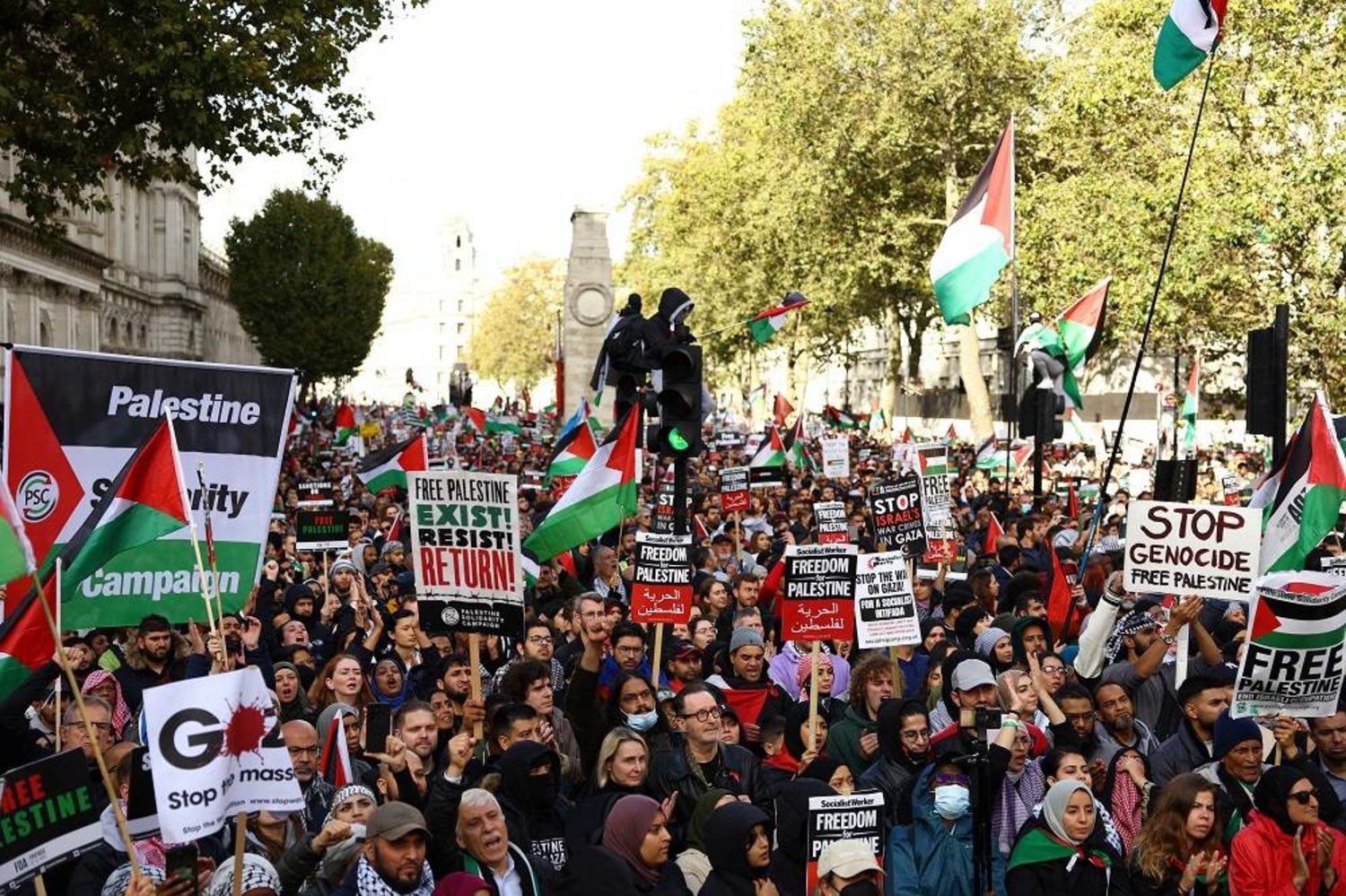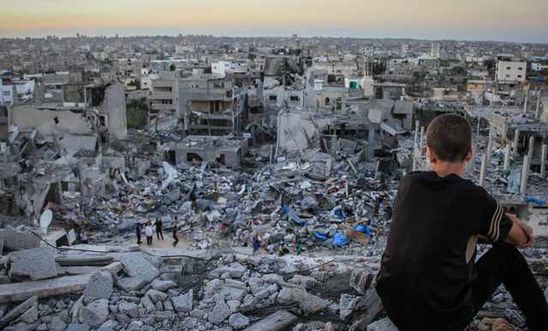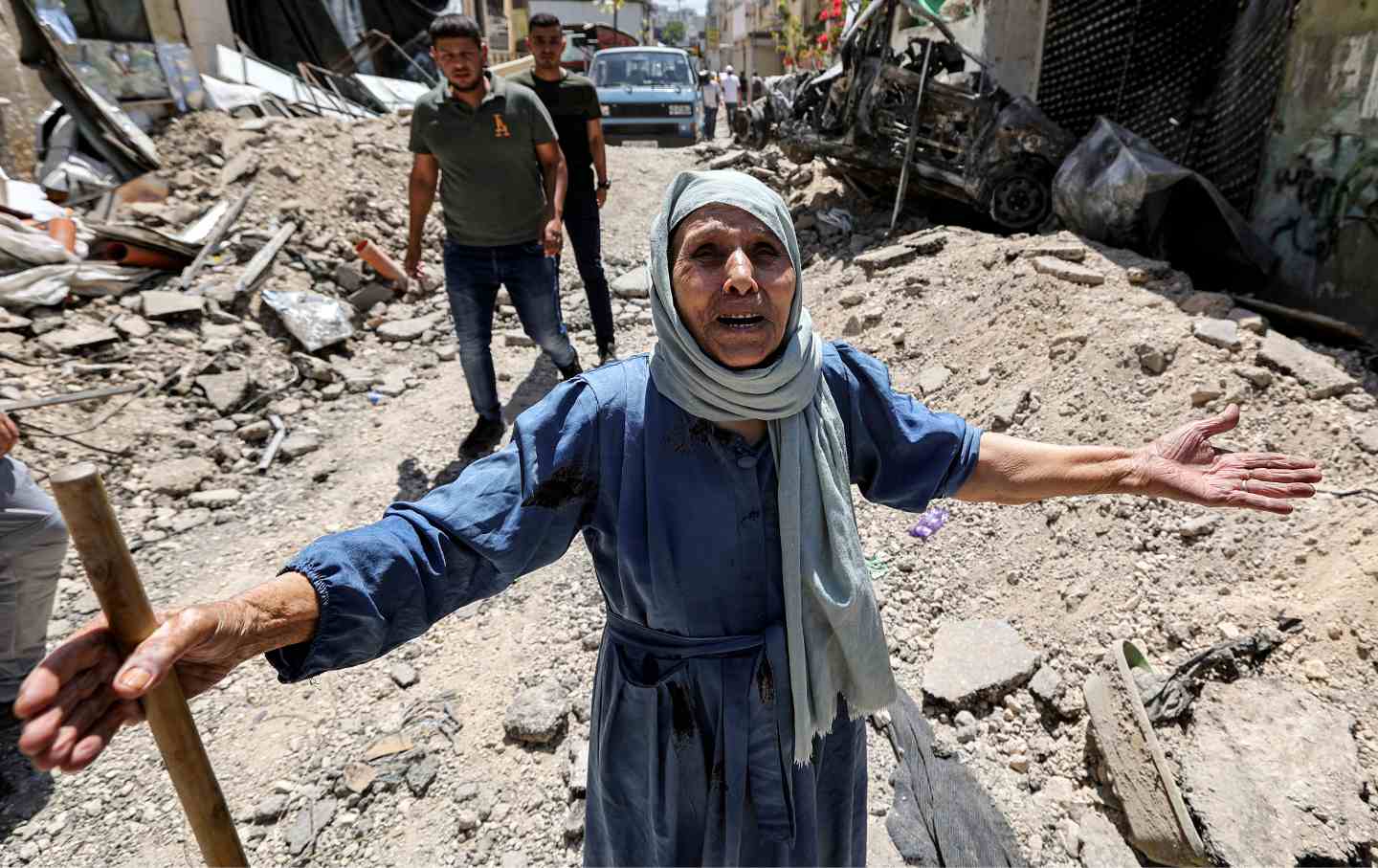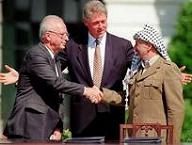
As Israel’s “Operation Summer Rain” rages on in the Gaza Strip for the second week in a row with over 20 Palestinians killed by Israeli fire on July 6 alone, the Palestinians find themselves once again in the quagmire where politics and the struggle for liberation overlap.
Since the signing of the Oslo Accords back in 1994, the Palestinians have been faced with predicament after predicament. True, prior to these peace accords, Palestinians were made to endure extremely harsh conditions living under Israel’s military occupation, which began in 1967. Even before that, the biggest blow was delivered to the Palestinian people and national cause in 1948 when the state of Israel was established at the expense of Palestine’s original inhabitants, over 800,000 of whom were forced from their homes and into a life of refuge.
Ironically however, being under occupation did not present the political dilemmas it does today. On the contrary, for the national cause, the goals and methods for which to reach them were clear cut. Fighting Israel and creating a platform for resistance was a source of pride for the Palestinians and an undisputed means for which to realize the ultimate goal of eliminating the occupation and realizing the dream of a Palestinian state.
Oslo was the single most significant event that dramatically changed the dynamics of the Palestinian cause. Suddenly, the Palestinians were no longer on “occupied” territory but “disputed” territory. Virtually overnight, a Palestinian police force was created, ministries were set up, security apparatuses roamed the streets of “liberated” cities and Palestinians were duly issued ID cards and passports with the words “Palestinian Authority” boldly embossed on them.
The people, burdened by decades of oppressive military rule and who bore the scars of burying so many of their loved ones killed over the years of the struggle, were more than eager to accept the scraps thrown to them by their trusted leadership, who perhaps may have believed in their heart of hearts that the agreements would eventually lead to an independent state. Did they not receive their leader, the symbol of their revolution, late President Yasser Arafat, with tears of joy and olive branches?
What followed, however, were not just physical changes on the ground. As Palestinians in the West Bank and Gaza grew accustomed to terminology such as Areas A, B and C, saluted the “presidential guards,” the “preventive security,” and the police in their streets, they were concomitantly weaned off the mentality of liberation and fed the language of conciliation by their new leadership, the Palestinian Authority.
While prior to the Oslo agreement, the odd peace “groupies” could be found throughout society, this mentality became all-pervasive – barring of course the opposition groups - once the Fateh-led PA was in charge.
Yet, the euphoria of this “near” statehood was short-lived. Palestinians soon realized the Oslo Accords were nothing but a death-trap for the cause and that Israel had no intention of honoring its commitments and allowing a Palestinian state ever to come into existence.
What was left were pockets of Palestinian controlled areas and a faint waft of autonomy in that the people were deceived into believing they had control over their own lives. They could go to ministries headed by their own people who spoke their language and possibly offered them a cup of coffee while they waited to be served. What they did not realize was that not one scrap of paper, not one passport or ID card or major decision was made without the consent of the “big boss”, the Israeli government which now had a convenient sidekick to do the mundane work they were more than happy to be relieved of.
The Israelis even got someone to do their dirty work as part of the Oslo package deal. Palestinian security forces began rounding up “militants”, Palestinian groups who dared oppose the deficient peace deal and resist the occupation, upon demand by the Israeli security services. Who would have believed that what Palestinians used to unanimously consider freedom fighters just a few years earlier were now being locked up in Palestinian prisons, handcuffed by men who, just maybe, shared a cell with them in an Israeli jail during the pre-Oslo years.
The real predicament didn’t arise, however until things did not go as expected. By the end of 1999, the Palestinians were no closer to their state than they had been before signing the accords. The only difference was that they had signed an agreement that bound them hand and foot. When the Intifada broke out in September 2000 after Israel had sliced up the West Bank and cordoned off the Gaza Strip without a promise of anything else, the Palestinians rose up against the injustice.
This time around, the Palestinians found themselves being pulled in different directions. While even the leadership realized they had not gotten what they bargained for, the world, which was witness to the grandiose signing of the Oslo Accords on the White House lawn, were holding them to their end of the deal. Resistance tactics were duly categorized into “acceptable” means and “unacceptable” ones.
This would prove to be the Palestinian leadership’s tragic flaw – falling somewhere in between a government (without a state) and a liberation movement. Bound by international agreements that promised to “combat terrorism” and coupled with the events of September 11 where the world was dichotomized as “good and evil,” Palestinians were caught between a rock and a hard place and the resistance was branded as “militancy” and “terrorism.”
Today, the Palestinians continue to suffer from this. Still very much under occupation, the overwhelming majority of Palestinians agree that resistance remains a legitimate option.
The best example of this quagmire is the events of the Gaza Strip. As Palestinian residents of Beit Hanoun and Beit Lahiya endure days and nights of Israeli missile attacks, tank shells and gun battles, carrying off scores of their dead and injured, the world barely blinks an eye. With the exception of a few tepid European and Arab condemnations, Israel continues its aggression undeterred. Those groups who carried out the attack on an Israeli army post and captured an Israeli soldier are “terrorists” while invading Israeli troops that bomb Gaza’s electricity network, plunging the Strip into darkness, and take out both resistance fighters and innocent bystanders are portrayed as “defenders of Israel’s security.”
While the international community, namely the United States and its allies, can certainly be considered one culprit in perpetuating this ridiculous balance of power, which equates resistance with terrorism, the Palestinians cannot be exempt from responsibility. Once the PLO put its John Hancock on that Declaration of Principles 12 years ago, it forever changed the premises of the Palestinian national cause and bound all future leaderships and political parties to obligations that do not always serve their best interests.
Joharah Baker is a Writer for the Media and Information Programme at the Palestinian Initiative for the Promotion of Global Dialogue and Democracy (MIFTAH). She could be contacted at mip@miftah.org




